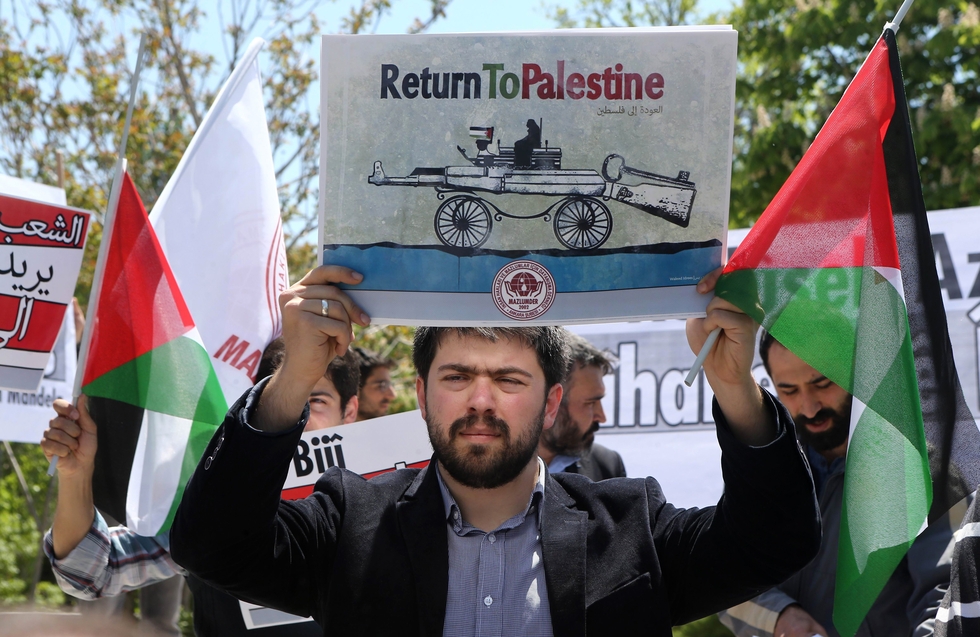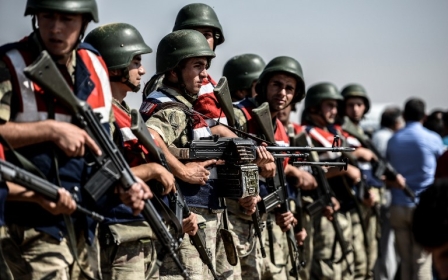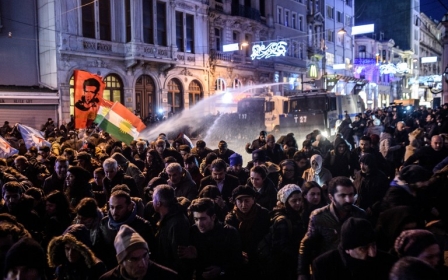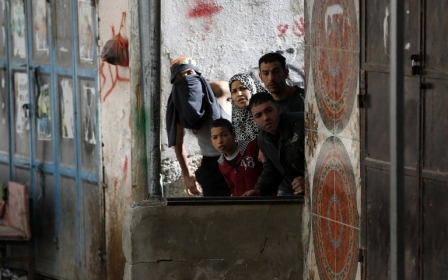Turkey and Israel 'close' to agreement in reconciliation talks

Turkey and Israel are close to sealing a final deal on compensation for the 2010 Mavi Marmara incident, a Turkish official said on Tuesday.
The official said that the two countries, who are currently in discussions in Switzerland, were about to wrap up a deal on “all issues” raised since reconciliation talks between the two countries began in December.
"The talks are going on. We are close to concluding a deal (on a full normalisation of ties) but it is not over yet so I won't comment further," the Turkish official told reporters in Istanbul on Tuesday.
"The sides should show some political will to conclude it," said the official.
Turkey broke off relations with Israel in 2010 after 10 Turkish activists were killed aboard the Mavi Marmara boat which was attempting to break the siege on Gaza and deliver aid to the Palestinians.
The country has long maintained that three conditions must be met before ties could be renewed: a public apology from Israel, compensation for the families of the victims, and the lifting of the Gaza blockade.
The first two conditions have been met, according to the Turkish official - the third condition, however, has been a major sticking point.
"We put [forward] our views very clearly," said the Turkish official. "We asked for an apology, we got it. On compensation, the negotiations are about to be over. The lifting of the Gaza blockade is our third condition."
Breaking the embargo?
Last Tuesday, Israeli Prime Minister Benjamin Netanyahu said that both Israel and Turkey would have to compromise to secure any deal.
"We aspire to normalisation with all our neighbours, but it's always a two-way street," Netanyahu told reporters, during a tour of southeastern Israel.
Hamas officials, who have been seen as close to Turkey’s ruling Justice and Development party (AKP), have expressed pessimism about the outcome of the Israel-Turkey negotiations.
“I can’t see in the near future an agreement happening because the Israelis will not give the Turks what they want in Gaza,” another senior Hamas official, who asked to remain anonymous, recently told Middle East Eye.
“The Turks want to break the siege and the Israelis will not give this.”
However, last Wednesday, Turkish Foreign Minister Mevlut Cavusoglu emphasised that his country was insistent on lifting the Israeli embargo on Gaza, rather than the blockade.
In technical terms, the embargo refers to restrictions on trade through “ports and territory” belonging to Israel, while the blockade refers to the “closing to international commerce by military force the coast” of Gaza.
The lifting of the embargo would allow Turkey to deliver supplies, such as medical or construction materials, to Gaza while the lifting of the blockade could allow for a free flow of goods and materials.
Tentative allies
Turkey was the first Muslim-majority country to recognise the State of Israel in 1949 and the two countries have been tentative allies ever since, though the Turks have continuously called for Israeli withdrawal from the occupied territories.
However, the rise to power of the AKP government has recently seen Turkish President Recep Tayyip Erdogan use harsh rhetoric against Israel, particularly during the 2014 bombardment of Gaza.
In April 2015, Deputy Prime Minister Bulent Arinc told Israel's Channel 2 TV that better relations between Turkey and Israel would be good for the region.
"We hope that there would be more positive statements from Netanyahu over the Palestine issue, Gaza issue and the resolution in the Middle East," Arinc told the channel, the first high-ranking Turkish official to speak on Israeli TV since the collapse of relations.
"We wait to see an Israeli government's strong will to end grievances between Palestine and Israel."
He also added that Turks had no ill-will towards Jews and that their only concern was with Israel's policies.
"There is no anti-Semitism in Turkey or racism. They won't find support from the public. We are truly sorry about how European and other countries lag behind Turkey in that sense."
Middle East Eye propose une couverture et une analyse indépendantes et incomparables du Moyen-Orient, de l’Afrique du Nord et d’autres régions du monde. Pour en savoir plus sur la reprise de ce contenu et les frais qui s’appliquent, veuillez remplir ce formulaire [en anglais]. Pour en savoir plus sur MEE, cliquez ici [en anglais].




